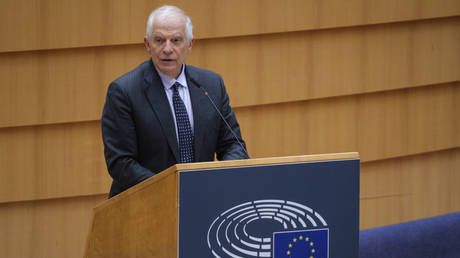Moscow, May 05, 2024, The Europe Today: Josep Borrell, the European Union’s top diplomat, has raised alarm over the lack of consensus among member states regarding the perceived threat posed by Russia to Europe’s security. Borrell’s remarks underscore the challenges facing the EU’s cohesive approach, particularly regarding the provision of military assistance to Ukraine.
Speaking at Oxford University on Friday, Borrell highlighted the divergence of opinions within the EU regarding the characterization of Russia as Europe’s “most existential threat.” He lamented that such differences in perspective are undermining the bloc’s collective policies, notably regarding military support for Ukraine in the face of Russian aggression.
Borrell emphasized his observation of a trend towards increased confrontation and diminished cooperation in global affairs. He pointed to instances of dissent among EU members, particularly concerning the stance on Russian President Vladimir Putin and the ongoing conflict in Ukraine.
“While some view Putin’s actions in Ukraine as an existential threat to Europe’s security, not all member states share this assessment,” Borrell remarked, warning of the potential consequences of such discord. He highlighted the risk posed by a single veto within the EU’s decision-making process, which could impede cohesive action against common threats.
The EU has implemented multiple rounds of sanctions against Moscow following Russia’s military intervention in Ukraine in February 2022. However, Borrell noted resistance from certain member states, such as Hungary and Slovakia, to provide military assistance to Ukraine, favoring diplomatic solutions instead.
Borrell referenced Hungary’s previous obstruction of the EU’s $54 billion aid package for Ukraine, which was only lifted in February 2024 after months of resistance. He also cited French President Emmanuel Macron’s recent comments refusing to rule out the possibility of sending NATO troops to Ukraine, a proposal met with criticism from Hungarian Foreign Minister Peter Szijjarto, who warned of the potential for escalation to a global conflict.
As the EU grapples with internal divisions over its approach to Russia and Ukraine, Borrell’s remarks serve as a reminder of the urgent need for consensus-building and solidarity among member states to address shared security challenges effectively.


